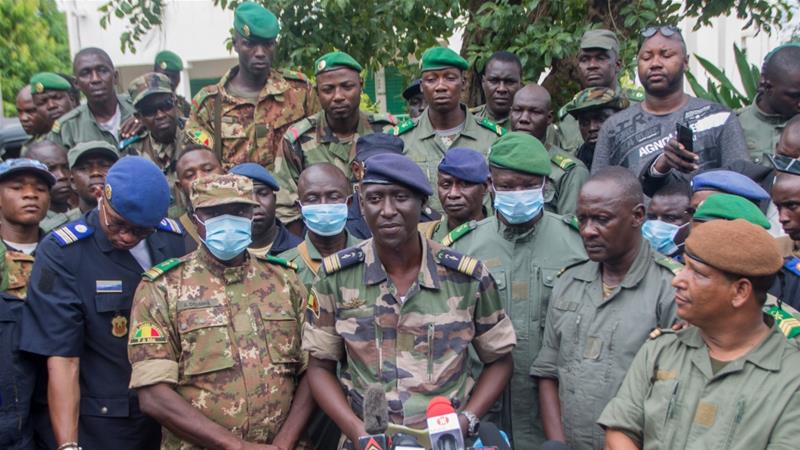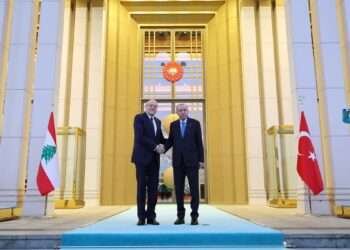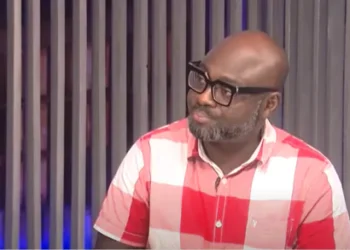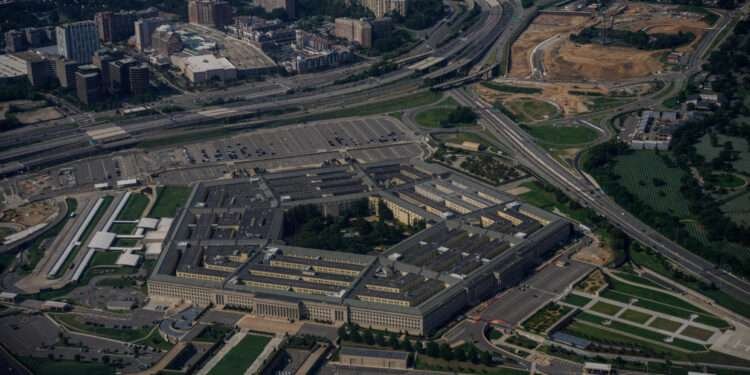Police fired teargas to dismiss campaigners for civilian rule as substantive talks over Mali’s political future has begun in the capital, Bamako.
About 100 supporters of the M5-RFP coalition, which led months of protests against now-deposed President Ibrahim Boubacar Keita, clashed with police at the entrance to the conference centre in the capital, delaying the start of talks.
Mali’s ruling military junta launched a three-day “national consultation” with political parties, unions and members of civil society groups amid the protests, facing questions at home and pressure from abroad over their plans for returning the country to civilian rule.
The talks mark the second round of discussions between the officers who last month overthrew President Ibrahim Boubacar Keita and civilian representatives, many of whom had campaigned fiercely for him to step down during weeks of protests against the country’s economic woes and spiralling security crisis.
The deliberation is centred on how the military government intends to make good on its promise to restore civilian governance and stage elections within a “reasonable” timeframe.
Early jubilation among many Malians over Keita’s exit has been superseded by questions and also divisions about the speed of the handover and the military’s role in the transition period.
“They are trying to confiscate our revolution from us,” said Bakary Keita, a senior M5-RFP member. “We were very clear from the start. We want a civilian as president of the transition, not a soldier.”
Supporters of the ruling junta, the National Committee for the Salvation of the People (CNSP), also assembled across the street from the building hosting the talks with political parties and civil society groups.
Some carried signs saying “Long live the CNSP” and portraits of CNSP president Colonel Assimi Goita.
“This is about diagnosing, without complacency, the problems undermining our democratic system,” Goita said in opening the three-day talks, but did not weigh in on who should lead the transition.
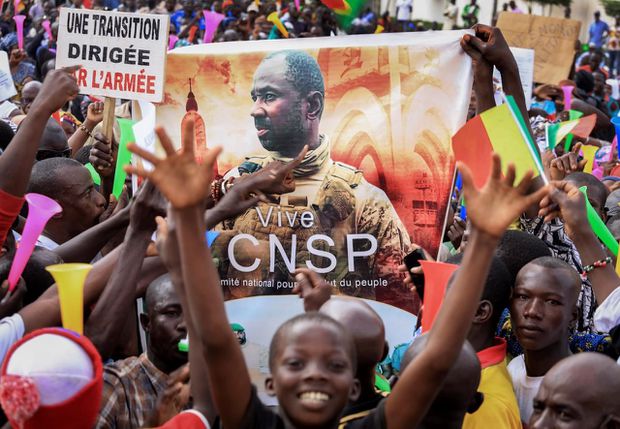
Mali’s neighbours have watched with concern, fearing that the country at the heart of the fight against armed groups in the Sahel region could further slide into chaos.
The years-long violence plaguing Mali, in which armed groups affiliated to al-Qaeda and ISIL (ISIS) have stoked ethnic tensions while competing for power, has also spilled into the neighbouring countries of Niger and Burkina Faso, destabilising the wider region and creating an enormous humanitarian crisis.
Fighters killed three Malian soldiers and destroyed two vehicles in an attack near Alatona, Segou region, in central Mali on Wednesday, according to reports citing military officials.
The military government initially talked of a three-year transition, corresponding to the time left in Keita’s second five-year mandate that would be overseen by a soldier.
In contrast, the 15-nation regional bloc Economic Community of West African States (ECOWAS) has set a hard line, closing borders, banning trade with Mali and insisting that the handover last 12 months maximum.
In the run-up to the talks, the bloc said Mali’s civilian transition president and prime minister “must be appointed no later than September 15”.
A committee of about 20 lawyers, researchers and academics has drawn up a draft “road map” resulting from a first round of talks on Saturday.
This document will be put to the forum “for amendment, improvement and enrichment”, its chair, Fatoumata Dembele Diarra, told reporters.

